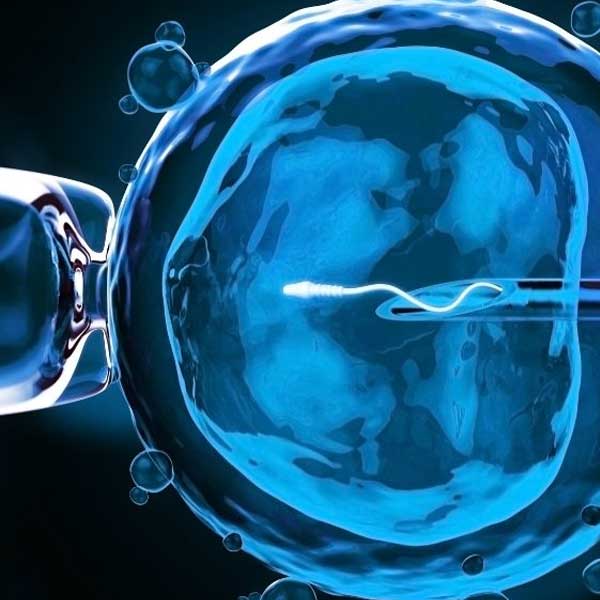Preimplantation genetic screening in Chennai is a revolutionary technique that helps couples undergoing in vitro fertilization (IVF) select healthy embryos for implantation. This advanced screening method increases the chances of a successful pregnancy by detecting genetic abnormalities before embryo transfer. If you are considering fertility treatments, understanding the benefits, process, and cost of PGS testing in Chennai can help you make an informed decision.
Overview of Preimplantation Genetic Screening
Preimplantation genetic screening (PGS) is a specialized test performed on embryos before implantation during an IVF cycle. This screening aims to identify chromosomal abnormalities that may lead to failed implantation, miscarriage, or genetic disorders. With advancements in reproductive medicine, PGS has become an essential part of assisted reproductive technology (ART), offering hopeful parents a greater chance of a successful pregnancy.
PGS is a genetic screening test performed to check for the presence of any abnormal chromosome that functions as a carrier of any congenital disease. Rathimed Fertility Centre offers the most advanced screening test to ensure only the best and healthiest embryo is transferred and implanted into the uterine cavity for development. The PGS test removes the risk of passing inheriting congenital diseases within the family to next generations. The screening test analyzes all the 23 chromosomes present in an embryo cell for any chromosomal abnormality. An embryo that comes clean from a screening test is used for transfer and implantation in the uterine cavity.
1. What is Preimplantation Genetic Screening (PGS)?
PGS is a procedure that analyzes embryos for chromosomal abnormalities before they are implanted into the uterus. This process ensures that only the healthiest embryos are selected, reducing the risk of genetic conditions and improving pregnancy outcomes.
Key Benefits of PGS:
- Identifies chromosomal abnormalities in embryos
- Enhances implantation success rates
- Reduces the risk of miscarriage
- Increases the chances of a successful full-term pregnancy
- Supports couples with a history of genetic disorders
2. Who Should Consider PGS?
Preimplantation genetic screening in Chennai is recommended for:
- Women over 35, as the risk of chromosomal abnormalities increases with age
- Couples with recurrent pregnancy loss
- Individuals with a family history of genetic disorders
- Couples experiencing repeated IVF failures
- Patients undergoing single embryo transfer to ensure healthy implantation
3. PGS Procedure
During the IVF procedure, the egg and sperms are mixed to fuse and fertilize into an embryo. The embryo rapidly multiples and reaches the multiple-celled stage. Once the embryo is multi-celled, a few sample cells are collected from the embryo through biopsy, and the PGD test is conducted. The biopsy process does not harm the embryo and is performed in two ways:
- A biopsy on the 3rd day of fertilization performed on polar bodies of cleavage stage embryos, collecting a single cell from the embryo
- A biopsy on the 5th, 6th, or 7th day at the Trophectoderm stage, collecting a few cells each from the embryos
The specialist screens for any chromosomal abnormalities, extra copies of chromosomes, or missing chromosomes. The embryos are preserved till the results are generated. Once the results are confirmed, only the healthy embryos showing normal chromosome pairs are transferred into the uterine cavity for implantation. PGS test completely eliminates the risk of having a child carrying congenital diseases.
4. Best Treatment for PGS in Chennai
Several fertility centers offer the best treatment for PGS in Chennai, utilizing cutting-edge technology and expert embryologists to ensure precise screening and embryo selection. When choosing a fertility clinic, consider factors such as:
- The clinic’s success rate with PGS-assisted IVF
- Availability of advanced genetic screening technology
- Expertise of fertility specialists and embryologists
- Comprehensive patient support and counseling services
5. PGS Testing Cost in Chennai
The cost of PGS testing in Chennai varies depending on several factors, including the number of embryos screened, the fertility clinic, and additional IVF-related procedures. On average, PGS testing cost in Chennai can range between ₹1,50,000 and ₹2,50,000. Some clinics may offer packages that include IVF and PGS, making it more affordable for couples.
Factors Influencing PGS Costs:
- Number of embryos tested
- Technology used for screening
- Expertise of the fertility specialists
- Additional IVF-related expenses
6. Who is a Good Candidate for PGD?
Any partner couples who have a genetic disorder including mosaicism of sex chromosomes, structural rearrangement, and monogenic genetic diseases are suggested to have a pre-implantation diagnosis test to ensure that the abnormality is not passed into the next generation. Other circumstances that recommend a PGD test include:
- Couples who are experiencing repeat pregnancy loss
- Couples who already have one child with a congenital disease
- High maternal and paternal age
- Male factor infertility
- Repeated implantation failure
PGS was successfully used to screen a number of genetic disorders, including Duchenne muscular dystrophy, sickle cell anemia, Leigh syndrome, retinoblastoma, hereditary inclusion body myopathy, cardiac disorders, and carriers of BRCA1. It helps identify abnormalities that can cause implantation failure during IVF.
7. Types of PGS Tests at Rathimed Fertility Centre
Rathimed Fertility Centre offers different levels of PGS tests based on individual risk factors. There are two types of PGS test available at our centre:
- Fluorescence In Situ Hybridization (FISH): FISH genetic screening is performed to check for the presence of X chromosome-linked disorders and genetic abnormalities. The screening prevents the passage of chromosome-linked abnormalities to the offspring.
- Microarray Comparative Genomic Hybridization (Array CGH): Array CGH is used for aneuploidy screening, analyzing both X and Y chromosomes.
Rathimed Fertility Centre increases the likelihood of giving birth to a healthy child in conjunction with In-Vitro Fertilization to help choose the healthiest embryos for implantation and development.
Conclusion
Preimplantation genetic screening in Chennai is a game-changer for couples seeking successful IVF outcomes. By identifying healthy embryos before implantation, PGS enhances pregnancy rates, minimizes the risk of miscarriage, and offers peace of mind to aspiring parents. If you are considering PGS, consult with a reputed fertility specialist to understand its benefits, process, and cost. Take the first step toward a healthier pregnancy and a brighter future with preimplantation genetic screening in Chennai.




